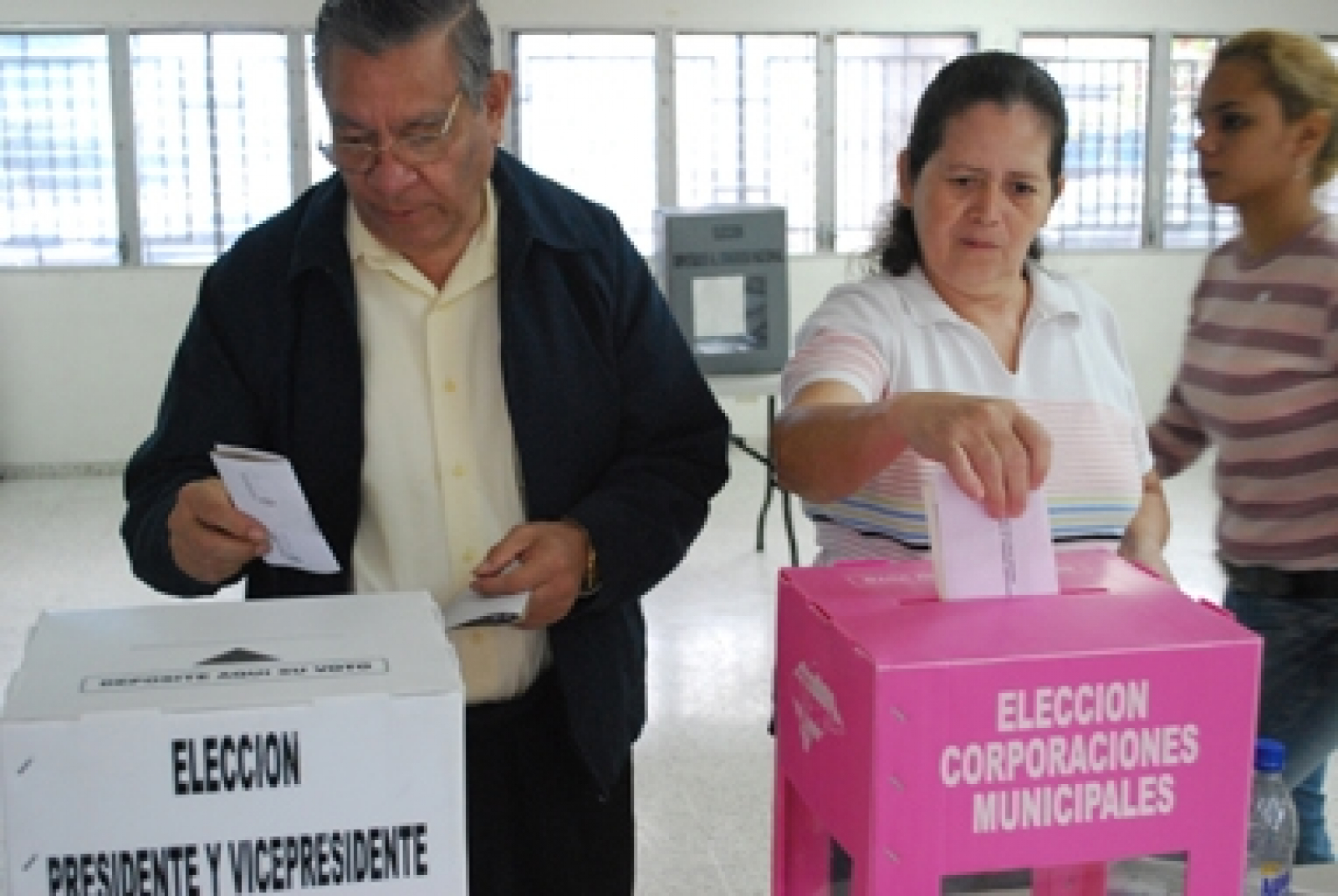
SHARE
NDI is conducting an international election assessment mission for the Nov. 29 general elections in Honduras. The Institute is mobilizing 20 international experts who will be deployed around the country to provide an impartial assessment of the conduct of the elections.
NDI said that monitoring the 2009 electoral process in Honduras presents special challenges given the sharp divisions within the country and between Honduras and the international community since the ouster of President Manuel Zelaya on June 28. The elections were convoked and the candidates selected before that event. But polarization and the political crisis in the country have greatly intensified, and the election process has been challenged both inside and outside the country. Honduras has been suspended from membership in the Organization of American States (OAS) for a coup d’état against the elected government in violation of the OAS Democratic Charter.
For some, the Nov. 29 elections represent a solution to the crisis and an opportunity to overcome the breach with the international community. Others assert, however, that the legitimacy of the elections themselves is linked to the reinstatement of the deposed president, the Institute noted.
NDI's assessment mission does not take a position on these larger political issues, nor should its presence in Honduras be viewed as such. Rather, the mission seeks to provide an impartial assessment of the conduct of the electoral process. How these elections are conducted will inevitably affect conditions for overcoming the political divisions in the country.
Our hope, NDI said, is that the assessment and any recommendations will contribute to concerted efforts by Hondurans to move forward with concrete steps toward national reconciliation in a way that overcomes the political crisis and advances democratic governance.
The Institute made the decision to send the mission to Honduras shortly after the signing of the Tegucigalpa-San Jose Accord, which set out a process for resolving the country's political stalemate. Because of the limited lead time before the elections and other factors, NDI determined that a traditional international election observation mission, based on international standards consistent with the widely-endorsed Declaration of Principles for International Election Observation, would not be possible.
The severe time constraints precluded sending long-term observers, a pre-election mission to assess thoroughly the campaign period, or a large-scale deployment of observers throughout the country. NDI decided to send a smaller, less formal assessment mission to provide an impartial, objective source of information regarding this process.
Delegation members come from North America, Latin America and Europe. They are election experts, civic leaders and others with knowledge of, and expertise in, regional affairs. While in Tegucigalpa, the group will meet with national and local election officials, representatives of political parties, human rights and other civil society organizations and the media before they are deployed around the country.
The Institute has been working since 2008 to safeguard the integrity of the Honduran election process by helping a nonpartisan, independent Honduran civic organization to observe the 2008 primary elections and prepare for the 2009 general elections through technical assistance on international best practices for election observation.
The assessment mission is being funded by a grant from the United States Agency for International Development.
Pictured above: Voters cast their ballots in Tegucigalpa on Nov. 29.
Published November 23, 2009


